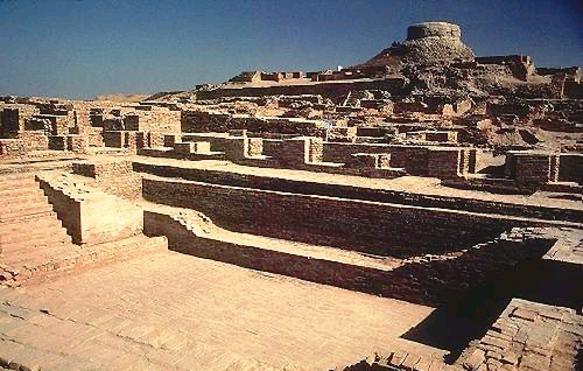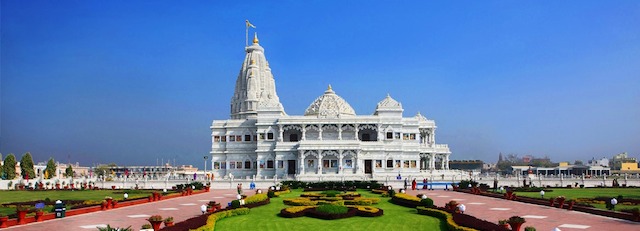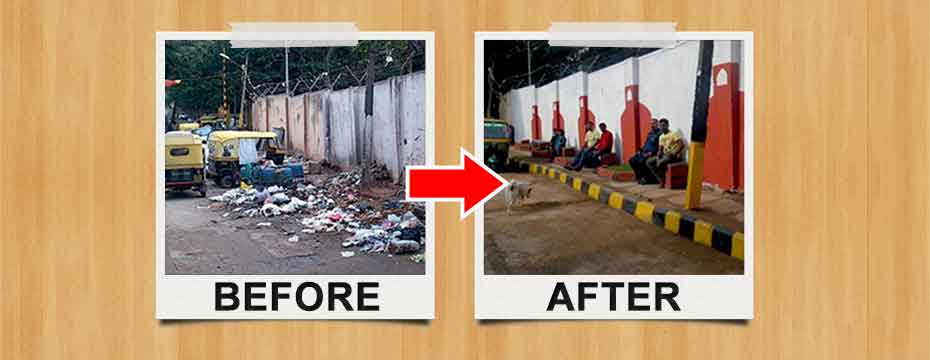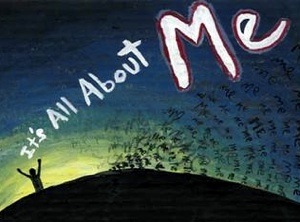A version of this Post was published at Andhra Cultural Portal on Sep 23, 2014

“Yessir, it is dirty. We are like this only…”, “It has always been this way”, “It is our kulchar, we don’t care, madam”…
Go to most of India’s cities and towns (and even villages) today, and filth, refuse, and even poverty strike the eye. Even in modernising and so-called high tech cities, such sights are not uncommon in parts of the city center, let alone outskirts. Why is it this way? Was it always the case?

The answer is a resounding “No”. But our ignorant native informants seem to take an almost masochist pleasure in berating India’s traditional culture. Worse, some of the people from “phoreign” have also begun picking up this knack and even attributed it to assorted Hindu scriptures. Fortunately, this was vehemently opposed with counter-articles. Nevertheless, both the image, and the continuing public hygiene problem in India remain.
A few of you, particularly those who’ve had rather awkward run-ins with ABCD’s may also ask why I’ve limited this to public hygiene. But the reality is, the oft-mentioned “deodorant” critique is rather unfair. Assembly line deodorants and anti-perspirants are very modern, and fast moving consumer goods have only truly started breaking into India in the past decade. The reality is, the average Hindu is very fastidious about Personal cleanliness, bathing once, or even frequently twice a day.
There is a popular story, not sure whether it’s apocryphal or not, that the Duke of Wellington (the famous British General) in fact picked up daily bathing while in India. So if the average Indian has historically been rather clean, what explains the mess he makes of the country today, let alone himself, in public? 1. Loss of civic sense and 2. Lack of consideration for others
Loss of Civic Sense
While many still debate whether or not India had a rough thousand years, it certainly had a rough 250. With the advent of the internet, the long suppressed miseries of Colonial rule are finally floating out.
In contrast, cities such as Mysore and Baroda administered by indigenous Princely Rulers such as the Maharajah and Gaekwad were known for their cleanliness and organization (still seen today).
But the predatory taxation of company and later crown rule ravaged the countryside, driving many off their land and into the cities. Flooded urban areas, unable to cope, could not be expected to manage the basic civic amenities. And as misery loves company, the poverty and slum life became generational. Thus, the once famously hygienic Hindu (it is the religion of ritual baths after all) became associated with uncleanliness. Cities degenerated, and the rivers became a mockery. But the greatest punishment of poverty is the breaking of the spirit, and with it, goes the dignity of living. Necessity begat squalour. This was further compounded by the blind ritualism that crept into religious practice. Ritual cannot be blind to its effect on society—it too, like Dharma, must adapt to its circumstances as needed.
This is not to say every Indian city had previously been a spotless Singapore. Rather, that standards of public hygiene and municipal ordinances were certainly in existence.
We certainly know the Indus-Sarasvati Civilization had the highest standard of civic hygiene (almost 2 millennia) before the Roman Empire, replete with a well planned drainage system.
Certainly, the ancient Great Bath of Mohenjo-Daro is emblematic of the high level of public cleanliness.

Kautilya himself stipulated strict laws regarding public hygiene. He mandated fines for
- “Causing damage to another house by letting urine or dung collect“
- Improper disposal of bodies (i.e. corpses in the Ganga)
- “Throwing dirt on the road“
- “Using a water reservoir as a latrine”
In fact, there are entire sections explicitly on “civic responsibility”, prevention of “nuisance”, and “public hygiene”. How ironic that that the country and civilization most criticised for its lack of civic responsibility and public hygiene had its most famous work on government specifically mandate them…
For the entire state and society to be clean, however, individuals too must also be clean. So let us also emphasize the importance of cleanliness. Indeed, cleanliness (saucha) is one of the pivotal aspects on the path to True Knowledge, as stipulated in the Gita. The Ramayana too described Sita’s “usual scrupulous cleanliness” as emblematic of one of her many virtues. It is for these reasons we posited Saucha as a critical aspect of Achara and emphasised how it furthers the development of Pavitrata (Purity), an important aspect of Dharma. This is because personal uncleanliness not only results in public uncleanliness, but also increases acceptance/proclivity for unclean thoughts and acts. That is why we say Cleanliness is Next to Godliness.
I understand that India is not China to develop a system of internal passports that keep out poor people and bulldoze slums on a whim—I am not advocating that either. At the same time, each person should do his part to make his little patch of land clean—and occasionally chip in around the more public portions. Here is a wonderful program out of Bangalore run by mostly IT people.
If they can do it, why can’t you?
Lack of Consideration for Others
 Consideration for others is an important concept. Lack of it is not always the result of selfishness, in fact, frequently, it’s the end product of self-centeredness. When we are over-involved with ourselves, and unable to step outside and reflect on our own behaviors and practices, we do not think of how we affect others.
Consideration for others is an important concept. Lack of it is not always the result of selfishness, in fact, frequently, it’s the end product of self-centeredness. When we are over-involved with ourselves, and unable to step outside and reflect on our own behaviors and practices, we do not think of how we affect others.
What about me?
There is an embarrassing story from some PIOs who discussed what happened at a small, residentially run temple in the States. While the established NRIs/PIOs avoided behaving like a nuisance, the new arrivals not only engaged in noise pollution through their inconsiderate behavior, but were actually throwing trash (even used diapers!) onto the property of the non-Indian locals. But where in the Dharmashastras is such stupidity permitted?—nowhere. Kautilya himself expressly punished such nuisance behavior towards neighbours as seen above. Thus, it is self-centeredness and lack of consideration for others that is the culprit. These people simply could not be bothered to do their part for society, and wanted to get back to their cozy little routines as soon as possible.
True, many of the new batch of economic guest workers/migrants come straight from the villages, but still, there must be an awareness of changed circumstances & surroundings that necessitates some hesitance and reticence. It cannot simply be business-as-usual the moment you step outside your home (or country). So while we have previously written of the importance of atma-vichara (self-reflection) and viveka (discrimination between right and wrong), the third and possibly most important pillar, is willingness to change or at least willingness to hear someone out (suśravasyā ) which ultimately comes from the placement of society above ourselves. That’s right, you’re part of a society…

We at ACP constantly talk about how you can dedicate 15 minutes a day for doing something for your culture/civilization. Prime Minister Narendra Modi recently said every Indian should dedicate 100 hours a year to cleanliness. You’re a multi-tasking person, so why not do both?
So there it is, dear reader, the importance of clean living, its evidence in our history, its centrality in our culture, and how it can better your life and country today.
https://youtu.be/i1DAbVjfK8E
References
- http://articles.economictimes.indiatimes.com/2014-08-14/news/52807674_1_clean-india-national-mission-mahatma-gandhi
- http://www.niticentral.com/2014/01/12/memsahibs-diary-gokarnas-cleanliness-is-gokarnas-godliness-178156.html
- http://www.niticentral.com/2014/05/20/why-modis-focus-on-cleanliness-makes-sense-225330.html
- http://timesofindia.indiatimes.com/india/Dedicate-100-hours-a-year-for-cleanliness-PM-Narendra-Modi-says/articleshow/42301078.cms
- Rangarajan, L.N. Edit, Kautilya. The Arthashastra. New Delhi. Penguin.1992. p.148, 374, 375
- The Ramayana Of Valmiki (Vol. 5) Sundarakanda An Epic Of Ancient India







![[Reprint Post] On the Perils of Ambition](https://indicportal.org/wp-content/uploads/2015/09/hqdefault-150x150.jpg)

